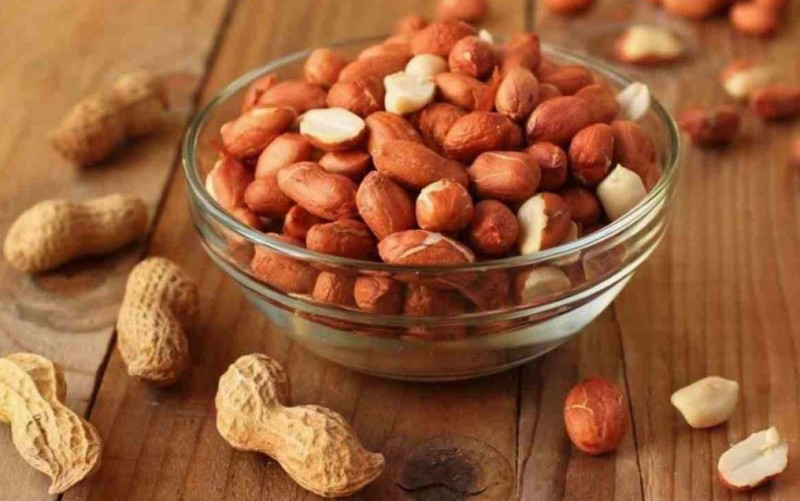
Peanuts, also known as groundnuts, are a popular legume that packs a nutritional punch. Native to South America, these crunchy delights are enjoyed globally and come with an array of health benefits. From providing essential nutrients to promoting heart health, peanuts offer an excellent option for a wholesome and satisfying snack. These mouth-watering, crunchy, and smooth nuts are tiny nuggets with numerous health benefits. They make for an amazing snack any time of the day. Peanuts are rich in various micro and macronutrients that are required by our bodies. In this article, we will explore the numerous health benefits of peanuts and why they should be included in a balanced diet.
Rich Source of Nutrients:
Peanuts are a treasure trove of essential nutrients. They are an excellent source of protein, providing a plant-based protein option for vegetarians and vegans. Additionally, they contain healthy fats, fiber, vitamins (such as B vitamins and vitamin E), and minerals (including magnesium, potassium, and phosphorus). Peanuts are rich in protein, fat, and fiber. While peanuts may have a large amount of fat, most of the fats they contain are known as “good fats.” These kinds of fats help lower your cholesterol levels
Heart-Healthy Fats:
Contrary to their name, peanuts are not nuts but rather legumes. They contain monounsaturated and polyunsaturated fats, which have been linked to reducing LDL (bad) cholesterol levels. Including peanuts in your diet can contribute to heart health by supporting healthy cholesterol levels and reducing the risk of heart disease. Peanuts contain nutrients that are necessary for having a healthy heart. They have magnesium, and copper, a healthy ratio of unsaturated fats, and antioxidants like resveratrol. Peanuts are also rich in monounsaturated fats, protein, and fiber that reduce cholesterol levels. These contain amino acids and antioxidants that keep the inner lining of the arteries safe thus protecting against heart conditions like atherosclerosis.
Supports Weight Management:
Despite their caloric density, peanuts can aid in weight management. The combination of protein, fiber, and healthy fats in peanuts helps keep you feeling full and satisfied, reducing the likelihood of overeating. Moderation is key, as portion control is important when incorporating peanuts into a calorie-conscious diet. The high protein content as well as the healthy unsaturated fats are not only good nutrients for weight loss but also provide high satiety value, thereby preventing one from binge eating.
Manages Blood Sugar Levels:
Peanuts have a low glycemic index, meaning they have a minimal impact on blood sugar levels. This makes them a suitable snack option for individuals with diabetes or those aiming to maintain steady blood sugar levels throughout the day.
Boosts Brain Health:
Peanuts contain vitamin E, an antioxidant known for its brain-boosting properties. Vitamin E helps protect brain cells from oxidative damage, potentially reducing the risk of cognitive decline and promoting overall brain health. For a healthy as well as sharper brain, you require nutrients like vitamin B1, niacin, and folate. When you eat peanuts your body is fueled with these nutrients. As a result, your brain becomes more active and sharp. Niacin and Vitamin B1 can also help one keep away from age-related cognitive decline and diseases like Alzheimer’s.
Supports Bone Health:
Peanuts are rich in nutrients like magnesium, phosphorus, and calcium, all essential for maintaining strong and healthy bones. Including peanuts in your diet can contribute to bone density and reduce the risk of bone-related issues as you age. Aging causes the weakening of several bones present in our body. Therefore, before your bones start to lose their strength, you should focus on eating healthy food options such as peanuts. It is rich in manganese and phosphorus. These nutrients and other vitamins present in peanuts will keep up the strength of your bones, thereby aiding you in your old age.
Promotes Healthy Skin:
The presence of vitamin E and healthy fats in peanuts is beneficial for skin health. Vitamin E helps protect the skin from oxidative stress and promotes a radiant complexion. Additionally, monounsaturated fats contribute to skin elasticity, keeping it supple and youthful. Peanuts contain resveratrol and monounsaturated fats that not only make the skin clear but even wash away toxins from the body that make the skin appear greasy and dull. Resveratrol further delays the signs of aging like wrinkles, fine lines, and dark spots. It is also a proven cure for skin illnesses like Psoriasis and Eczema.
Peanuts are not only delicious but also offer a plethora of health benefits. Packed with essential nutrients, heart-healthy fats, and brain-boosting compounds, peanuts make for an ideal addition to a balanced diet. As with any food, moderation is key, and individuals with nut allergies should exercise caution. Enjoying peanuts as part of a diverse and nutritious diet can support overall health, contribute to heart health, and provide a satisfying and nourishing snack option for people of all ages.
Strengthen Your Bones Naturally: 7 Foods That Build Bone Density
5 Benefits of Sabudana Khichdi for Your Health
5 Benefits of Chewing Food Properly